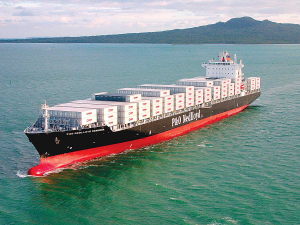Red Meat Sector Experiences Record Returns in 2025/26 Season
The red meat sector finds itself in "a very rare set of circumstances", says Federated Farmers meat and wool industry chair Richard Dawkins.
 BNZ senior economist Doug Steel believes agriculture will be one of the better performing sectors through the COVID-19 crisis.
BNZ senior economist Doug Steel believes agriculture will be one of the better performing sectors through the COVID-19 crisis.
Primary product prices will fall further this year but remain at reasonable levels before some improvement in 2021, according to BNZ senior economist Doug Steel.
However, the falls – so far this year – have not been as much as might have been expected, he says.
“The defensive qualities of NZ’s food-heavy export mix may well be a Godsend for the economy as a whole during the current turmoil. If nothing else, it is easy to imagine a new-found appreciation for where our food comes from,” Steel told Rural News.
From a NZ agriculture point of view, selling into world markets – even with challenges and at reduced prices – is considerably better than conditions faced by a lot of other sectors, he says.
“This does not mean agriculture will come through the world’s ills unscathed, but we do think this places agriculture to be one of the better performing sectors through this crisis.
“And the country will be better off for it,” Steel adds.
“If there is a silver lining to any of this, it could be that the most challenging of times often generate the best ideas. Good ideas to do things better ways. It comes from necessity. If so, when the dust has settled, we may see productivity lift and with it better medium-term prospects.”
However, Steel warns there’s no doubt the world is entering a recession with lockdowns common.
He cites as an example the nearly 10 million additional people in two weeks in the US seeking unemployment benefits “completely dwarves anything we have seen before”.
“Declines in world economic growth are typically negative for primary product prices. Reduced incomes tend to lower demand ultimately pulling prices lower,” Steel explains.
“True to form global food prices have generally fallen this year, but encouragingly not by as much as some might have expected.”
Other markets like equities or industrial products have been hit harder.
Any price improvement in 2021 would be based on the virus being brought under control and some economic stability and recovery starting to appear later in the year.
“Obviously this remains a big unknown. China offers some hope here as it gets on top of the virus and starts to relax various lockdown measures. This should see China’s economic recovery building, albeit likely slowly, on the tentative signs we have seen to date.
“Recent positive sales for the likes dairy and kiwifruit into China is encouraging.”
Steels says it is possible following massive drop in near term economic activity, we see a decent bounce relatively quickly.
“Not back to normal, or where activity was pre-virus, but simply off the lows seen during strict lockdown.
“We think activity levels are likely to remain below pre-virus levels for quite some time. Associated with this, we expect a sharp rise in the unemployment rate and for it to remain elevated for some time.
“Food related product prices are expected to hold up better than most. It’s a cliché but people have to eat. Food is one of the ultimate necessities.”
There are concerns about consumers’ ability to pay – partly offset by government interventions.
Consumer spending is likely to be more focused on necessities rather than luxuries.
Food service has been seriously curtailed with the closure of restaurants and cafes in many countries. Meanwhile, more food is bought at supermarkets, then prepared and eaten at home.
Restaurant reservation numbers around the world will provide an early sign of recovery.
The Real Estate Institute of New Zealand (REINZ) has released its latest rural property report, providing a detailed view of New Zealand’s rural real estate market for the 12 months ending December 2025.
Rural retailer Farmlands has released it's latest round of half-year results, labeling it as evidence that its five-year strategy is delivering on financial performance and better value for members.
OPINION: "We are back to where we were a year ago," according to a leading banking analyst in the UK, referring to US president Donald Trump's latest imposition of a global 10% tariff on all exports into the US.
DairyNZ says the Government’s proposed Resource Management Act reform needs further work to ensure it delivers on its intent.
Overseas Trade Minister Todd McClay says he's working constructively with the Labour Party in the hope they will endorse the free trade agreement (FTA) with India when the agreement comes before Parliament for ratification.
Donald Trump's latest tariff tantrum has again thrown the world of trade into a new round of turmoil and uncertainty, and NZ is caught up in it.

OPINION: A mate of yours truly reckons rural Manawatu families are the latest to suffer under what he calls the…
OPINION: If old Winston Peters thinks building trade relations with new nations, such as India, isn't a necessary investment in…